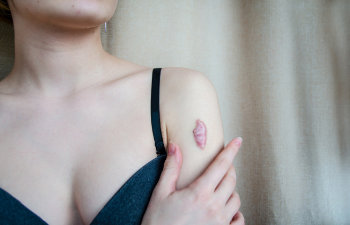
Keloids are a fascinating and often misunderstood aspect of dermatology. These raised, thickened scars can form after injuries or surgeries and can be physically and emotionally distressing for those who develop them. While keloids are well-known, several lesser-known facts shed light on their complexity and impact.
1. Keloids Can Affect Anyone
Although keloids are more common in people with darker skin tones, they can develop in individuals of any ethnicity. Genetics play a significant role, and a family history of keloids increases the likelihood of developing them.
2. No Age Limit
Unlike some other skin conditions, keloids are not age-restricted. They can appear in children and adults, with no specific age range. However, they are more common in teens and young adults versus children or older adults.
3. They Aren’t Limited to Skin
While keloids are primarily associated with the skin, they can also affect the mucous membranes inside your mouth and nose. These are known as mucosal keloids and are rare.
4. Not All Scars Become Keloids
Just because you have a scar doesn’t mean it will become a keloid, even if you have previously had keloids. Keloids occur when there’s an overproduction of collagen during the healing process. Most scars heal without this overproduction and remain flat or within the borders of the original wound.
5. Hormonal Influence
Hormonal changes can impact the development of keloids. Pregnant women, for instance, may be more prone to developing them. Hormonal treatments, such as those for breast cancer, can also increase the risk.
6. Keloids Can Be Painful
Beyond their appearance, keloids can cause physical discomfort. They may itch, burn, or even become tender when they rub against skin due to their raised structure, making them more than just a cosmetic concern.
7. Treatment Can Be Challenging
There is no one-size-fits-all treatment for keloids. Options include corticosteroid injections, laser therapy, silicone sheets, and surgical removal. However, even with treatment, keloids can sometimes return or become more pronounced. At Medical Dermatology Specialists, we offer personalized treatment plans for our keloid patients to find the best option for removing keloids permanently.
8. Prevention is Key
Because treatment is not always effective, prevention is crucial. If you are prone to keloids, consider minimizing elective surgeries or taking steps to reduce your risk, such as using silicone gel sheets immediately after an injury or surgery.
9. Scars Can Evolve
Keloids may change over time. They can grow larger or become darker, which can be distressing for those who have them. Monitoring and managing these changes is essential.
10. Emotional Impact
Keloids can have a profound emotional impact on individuals. The visible nature of keloids can lead to self-esteem issues, anxiety, and even depression. Support and counseling can be valuable for individuals struggling with the emotional aspects of living with keloids.
11. Association with Ear Piercings
Keloids are relatively common complications of ear piercings, particularly in individuals with a genetic predisposition. This fact underscores the importance of proper piercing techniques and aftercare to reduce the risk.
12. Vitamin E May Not Be Effective
Despite popular belief, applying vitamin E to a healing wound or scar may not prevent keloid formation and can sometimes worsen the condition. It’s crucial to follow evidence-based treatments rather than relying on anecdotal remedies.
13. Potential for Recurrence
Even after successful treatment or surgical removal, keloids can reappear in the same location or nearby. This highlights the challenging nature of managing keloids.
14. Geographic Variation
The prevalence of keloids varies around the world. They are more common in certain geographic regions, particularly in individuals with darker skin types. This suggests that environmental factors, in addition to genetics, may play a role.
15. Research Continues
Despite decades of study, there is still much to learn about keloids. Researchers are exploring innovative treatments, such as genetic therapies and immunomodulators, to improve outcomes for those with this condition.
Keloids are a complex and often underappreciated aspect of dermatology. While they may seem like a mere cosmetic concern, their physical discomfort and emotional impact are significant. By increasing awareness and understanding of these lesser-known facts, we can better support individuals living with keloids and continue to advance research and treatment options in the field of dermatology. If you are prone to keloids or have a current keloid scar, contact our team at Medical Dermatology Specialists to discuss treatment. Call our clinic in Atlanta, GA, to schedule your appointment.
Posted on behalf of
5730 Glenridge Drive, Suite T-100
Atlanta, GA 30328
Phone: Call (404) 939-9220
FAX: (470) 312-2157
Email: jstalls@atlmedderm.com


